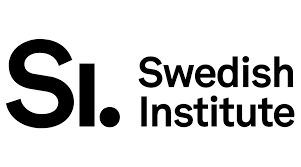Meeting
Balteel-reco II regional meeting on Future eel funding
January 10, 2024
Meeting
Balteel-reco II regional meeting on Future eel funding
Start date: January 10, 2024
End date: January 11, 2024
Time:
Place: Online and in Uppsala, Sweden
Address: Östra Ågatan 53, 753 22 Uppsala
Description
On 10–11 January 2024 was the Balteel-reco II regional meeting on Future eel funding in Uppsala, Sweden. This meeting was the opportunity to discuss future funding opportunities, approaches and objectives for the BALTEEL-RECO II project on eel management in the Baltic Sea Region.
Meeting objectives
● Look at needs and priorities on a national and regional level
● Identify potential long-term funding sources
● Discuss objectives and approach of future projects in light of potential funding
● Brainstorm plans for future collaboration projects with additional countries
CCB Participant in the meeting
- Nils Höglund, CCB Fisheries Officer
About the project
The project focuses on improving the European eel population. The aim is to develop further an existing partnership to advocate more effectively for a coordinated approach to eel recovery and management measures in the Baltic Sea region.
The European eel population has declined dramatically since the 1970s, and despite recovery measures agreed by the EU almost 15 years ago, it shows no sign of recovery according to the latest scientific advice. In less than 50 years, it has gone from one of our largest, most widespread fishery resources to a critically endangered species.
The project is funded by the Swedish Institute.

Meeting objectives
● Look at needs and priorities on a national and regional level
● Identify potential long-term funding sources
● Discuss objectives and approach of future projects in light of potential funding
● Brainstorm plans for future collaboration projects with additional countries
CCB Participant in the meeting
- Nils Höglund, CCB Fisheries Officer
About the project
The project focuses on improving the European eel population. The aim is to develop further an existing partnership to advocate more effectively for a coordinated approach to eel recovery and management measures in the Baltic Sea region.
The European eel population has declined dramatically since the 1970s, and despite recovery measures agreed by the EU almost 15 years ago, it shows no sign of recovery according to the latest scientific advice. In less than 50 years, it has gone from one of our largest, most widespread fishery resources to a critically endangered species.
The project is funded by the Swedish Institute.
